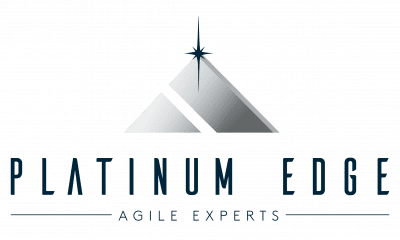by Jason Gardner (ed.)
Regarding software development, the agile methodology of scrum has been proven to be a highly effective approach to project management and team collaboration. However, some project managers and teams may feel hesitant to implement scrum if they have a dislocated team – one where members are spread across different locations or even different time zones. The truth is, if you have a dislocated team, scrum can still work for you! It can increase your chances of achieving success. In this blog post, we will explore the benefits of scrum for a dislocated team and how scrum can help your team overcome any challenges they may face.
Collaboration and Communication
One of the main benefits of scrum is its focus on collaboration and communication. Scrum teams work together closely, often through daily stand-up meetings, sprint planning sessions, sprint reviews, and retrospectives. This level of collaboration fosters a stronger sense of community within the team, which can be especially helpful for dislocated teams that may struggle with communication barriers. By working together regularly, team members develop a rapport with one another and are more likely to share their progress, ideas, and challenges. With the help of tools like video conferencing and messaging apps, scrum teams can stay connected and collaborate effectively despite any distance or time differences.
Improved Transparency
Scrum emphasizes transparency, which can be particularly beneficial for dislocated teams. Transparency ensures that everyone on the team is aware of the project’s progress, any obstacles that may arise, and what needs to be done in the future. This level of transparency can help prevent miscommunications and misunderstandings, as each team member is kept in the loop. Scrum’s emphasis on transparency can be beneficial for managers who oversee dislocated teams, as they can have a clear understanding of how the project is progressing and can step in to help resolve impediments if necessary.
Flexibility and Adaptability
Dislocated teams may face additional challenges when it comes to scheduling and time management. Scrum is designed to be flexible and adaptable, which makes it an excellent choice for a dislocated team. Scrum allows teams to adjust their plans based on changes in the project’s scope or other unexpected circumstances such as a team member’s absence due to illness. This flexibility is especially important for dislocated teams, as they may have to adjust their schedules to accommodate different time zones or working hours. By using scrum, team members can collaborate and adapt to changes quickly, ensuring that the project stays on track.
Increased Productivity
Scrum’s focus on regular feedback loops and focus can lead to increased productivity. Dislocated teams are often under additional pressure to demonstrate their productivity, as managers may be concerned about the need for more direct supervision. Scrum can provide a framework for team members to share their progress and accomplishments, which can help motivate each other and keep them on track. Additionally, scrum’s emphasis on breaking tasks down into smaller, manageable chunks can help dislocated teams stay focused, as they’re better equipped to track progress on individual tasks and goals.
Enhanced Morale
Working as part of a dislocated team can be isolating, leading to lower morale and job satisfaction. Scrum’s focus on collaboration can help boost morale, as it encourages team members to work together and support one another. Additionally, sprint retrospectives can provide opportunities for team members to discuss what’s working well and what needs improvement, allowing them to feel heard and valued and improve the system. By using scrum, dislocated teams can cultivate a sense of camaraderie and teamwork, even if team members are miles apart.
Conclusion
Scrum can be an incredibly effective approach to software development, even if you have a dislocated team. By emphasizing communication, transparency, flexibility, productivity, and morale, scrum can help dislocated teams overcome any challenges they may face. With the help of technology and a shared commitment to collaboration and continuous improvement, dislocated teams can achieve their goals and succeed in their projects. Whether you’re a project manager, a scrum master, a software developer, a product owner, or a team lead, it’s worth considering scrum as a framework for managing your dislocated team.


